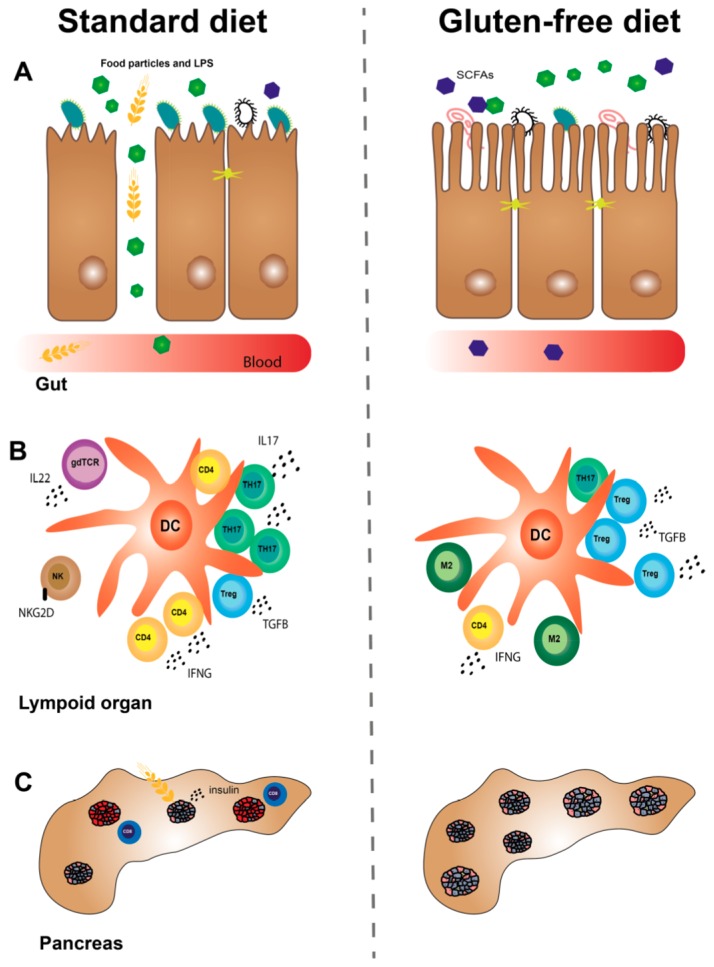Figure 1.
Gluten free (GF) diet and the development of type 1 diabetes (T1D)—a hypothesis. (A) A GF diet decreases the intestinal permeability and increases the villus-to-crypt (V:C) ratio, thereby preventing food particles such as gliadin peptides from crossing the intestinal barrier and reacting the pancreas. A GF diet increases the number of Akkermansia bacteria, among other changes, and the amount of short-chain fatty acids (SCFAs) such as butyrate. (B) A GF diet modulates the innate and adaptive immune system resulting in reduced interferon gamma (IFNG) secretion from CD4+ T helper (TH) cells, reduced interleukin (IL)22 secretion from gamma delta T cell receptor (gdTCR)+ T cells, and lower numbers of activated (NKG2D+) natural killer (NK) cells, among other things. TH17 cell numbers are reduced and immunosuppressant M2 macrophage numbers and forkhead box P3 (FOXP3)+ regulatory T cell (Treg) numbers are increased. (C) A GF diet reduces beta-cell stress by reducing the insulin secretion. This may preserve the number of islets, reduce insulitis, and ameliorate T1D.

